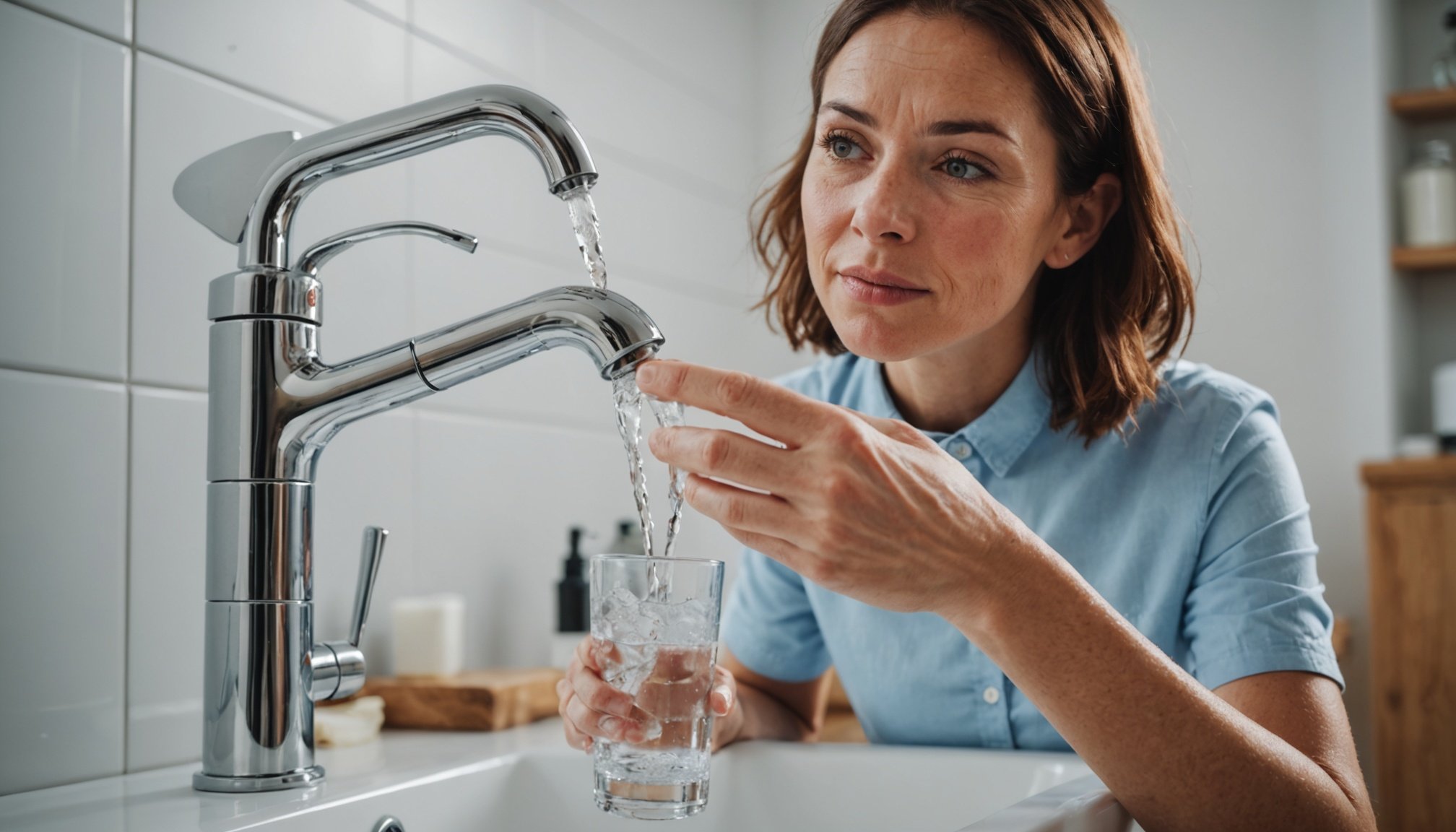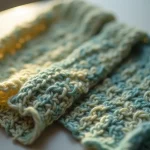Understanding Hard Water and Its Effects on Skin Health
Hard water is defined by its high mineral content, primarily calcium and magnesium. These minerals, while natural, lead to several implications for skin health.
When hard water interacts with your skin, mineral deposits can accumulate. This often results in various skin issues such as dryness and irritation. These minerals mix with soaps and detergents, reducing their effectiveness, and leaving a film on the skin. Over time, this film can cause the skin to become dry and even exacerbate skin conditions like eczema.
Also to see : What skincare routines should you follow for glowing skin all year round?
The effects of hard water on skin health can vary, notably across different regions, due to the variance in UK water quality. For instance, areas where water exceeds certain levels of mineral content might experience more severe skin issues. Such effects on skin mean that those living in hard water areas may need to adjust their skincare routines, perhaps using more moisturising products or cleansers specifically designed for hard water.
Understanding the composition of hard water and its direct implications on your skin can empower individuals to make informed decisions about skincare and prevention strategies, potentially using water softeners or similar solutions to mitigate these effects.
Have you seen this : Mastering the Art of Combining Chunky Sneakers with Feminine Dresses for a Perfectly Balanced Style
Specific Challenges of Hard Water in the UK
Hard water is a significant challenge in the UK, especially in certain regions. The UK water quality varies greatly, with some areas experiencing more severe hard water due to higher mineral content. Hard water is prevalent in areas like the southeast and London, where it can lead to skin sensitivity issues among residents.
Regional Differences
Different regions experience varying degrees of hard water. This is primarily due to differences in the source of the water supply and the geological makeup of the area. For instance, areas with a high concentration of limestone and chalk naturally have water with higher mineral content. These minerals, such as calcium and magnesium, are what classify water as “hard.”
Impact on Skin Conditions
The mineral content in hard water can exacerbate skin conditions. Many people in hard water regions have reported skin sensitivity, such as dryness, irritation, and eczema flare-ups. This is partly because the minerals in hard water can leave a residue on the skin, inhibiting moisture absorption and potentially irritating sensitive skin types.
Personal Anecdotes
Residents across the UK often share personal stories of how hard water has affected their skin. From increased skin irritation to needing specialised skincare products to counteract the effects, personal anecdotes highlight the everyday impact of UK water quality. This underscores the importance of understanding regional differences in water composition and its effect on health.
Effective Skincare Routines for Hard Water
Dealing with hard water can be a challenge for maintaining healthy skin. Its high mineral content can clog your pores, potentially leading to dryness and irritation. Thus, implementing a targeted skincare routine is crucial to counteract these effects.
Choosing the Right Cleansers and Moisturizers
When selecting your skincare products, opt for gentle cleansing methods. Look for a cleanser that can effectively remove impurities without stripping your skin’s natural oils. Ingredients like glycerin and hyaluronic acid can be particularly beneficial. They not only clean your skin, but also maintain its hydration levels.
Recommended Skincare Ingredients
To combat the effects of hard water, incorporate skincare ingredients that offer extra hydration and protection. Some such ingredients include:
- Ceramides: Strengthen the skin barrier and lock in moisture.
- Aloe Vera: Soothes and hydrates the skin.
- Vitamin E: Provides antioxidant protection and improves skin texture.
Daily Skincare Elements
During periods of high water hardness, consider adapting your routine. A good practice is starting your day with a gentle cleanser followed by a moisturizer to maintain hydration. At night, double cleansing might help remove any additional residue left by hard water. Regular exfoliation, once or twice a week, can also keep your skin smooth and free from mineral buildup.
Product Recommendations for Hard Water Skin Care
Navigating the world of skincare products can be challenging, especially with hard water in the mix. It’s crucial to select the right products to manage your skin’s needs effectively, ensuring that you maintain a healthy and glowing complexion despite the harsh elements introduced by hard water.
Cleansers
When dealing with hard water, the choice of cleanser is paramount. Top-rated cleansers crafted specifically to counteract the effects of hard water often contain ingredients like glycerin and ceramides. These elements help to remove impurities while retaining the skin’s natural oils. Brands like CeraVe and La Roche-Posay, popular in the UK, offer formulations that are effective in restoring the skin’s balance.
Moisturizers
Choosing the best brands in moisturizers for hard water situations means opting for those designed for dry skin. Hydrating products with hyaluronic acid make ideal choices. Some UK-specific recommendations include brands like Clinique and E45; they provide deep moisturization, ensuring that your skin stays supple and nourished.
Treatments
To enhance skin recovery, consider treatments and serums rich in antioxidants and vitamins. These are essential for repairing any damage hard water might cause. Look for serums with vitamin C or essential fatty acids, which assist in restoring and revitalising your skin. Brands such as The Ordinary and Kiehl’s have gained trust for their effective formulations.
Tips for Using Softeners and Filters
Navigating the world of water softeners and filtration systems can be a daunting task, yet these tools prove invaluable in ensuring your water quality. Here’s how you can choose and maintain them effectively.
Different Types of Water Softeners
Not all water softeners are created equal. The most common types include salt-based ion exchange softeners, salt-free water conditioners, and magnetic water descalers. Salt-based systems are highly effective for hard water, replacing calcium and magnesium with sodium ions. In contrast, salt-free technologies don’t remove the minerals but prepare them so they don’t adhere to surfaces, ideal for milder hardness levels.
Choosing the Right Filtration System
Selecting the correct filtration system depends on your specific needs. Consider factors like the contaminants present in your water and your family’s requirements. Carbon filters are great for removing chlorine and reducing bad taste, while reverse osmosis systems offer comprehensive filtering for numerous impurities. Consider models certified by reputable organisations to ensure reliability.
Maintenance Tips
To optimise the benefits of your systems, upkeep is crucial. Regularly check and replace filter cartridges as per the manufacturer’s guidelines. Clean and inspect your water softener periodically, focusing on the brine tank and the resin bed. With adequate maintenance, these systems can significantly enhance water softness and purity, providing lasting benefits for your home.
Understanding Hard Water and Its Effects on Skin
Hard water is a common issue across the UK, characterised by a high mineral content, primarily calcium and magnesium. These minerals accumulate as water passes through limestone, chalk, or gypsum deposits. While harmless to drink, hard water can significantly impact skin health.
When used for washing, hard water leaves mineral deposits on the skin. These minerals can interfere with the natural moisture barrier, causing water to evaporate more quickly from the skin. As a result, skin is prone to dryness and irritation.
Effects on Skin Moisture
The impact of hard water on skin moisture is notable. The minerals disrupt the formation of soap lather, leading to soap residue that clogs pores. Such residue contributes to skin irritation and other issues, particularly for those with sensitive skin types.
Common Skin Issues
Individuals often experience dryness, itchiness, and redness due to repeated exposure to hard water. In severe cases, this can exacerbate conditions like eczema or dermatitis. To mitigate these effects, consider installing water softening systems that reduce mineral content, or use skincare products designed for hard water areas. Regular moisturizing can help maintain the skin’s natural barrier function despite hard water exposure.
Effective Skincare Routines to Combat Hard Water
Navigating skincare amid the challenges posed by hard water can be daunting. It’s essential to adjust your skincare routine to maintain healthy skin.
Daily Cleansing Practices
Daily cleansing is the cornerstone of any effective skincare routine. When dealing with hard water, it’s crucial to opt for gentle cleansers to prevent skin irritation. These cleansers help maintain the skin’s natural barrier without stripping away essential oils. Recommended products include hydrating gel-based cleansers specifically designed for hard water areas. A smart approach is to use purified or distilled water for rinsing to minimize hard water’s impact, maintaining a soft and supple feel.
Moisturizing Strategies
Selecting the right moisturizing products is vital for combating the drying effects of hard water. Look for moisturizers with ingredients like hyaluronic acid and ceramides, which effectively retain moisture. Layering these products, starting with lighter serums followed by thicker creams, ensures optimal hydration. Ideally, apply moisturizer within minutes post-cleansing to lock in moisture before it evaporates.
Exfoliation and Skin Treatment
Regular exfoliation is key in sloughing away dead skin cells, but it’s essential to use products that are gentle on sensitive skin. Consider enzyme-based exfoliants or products with lactic acid, which are less abrasive. Additionally, soothing treatments, such as aloe-based gels or calming masks, can help alleviate any irritation caused by hard water, ensuring your skin’s comfort and resilience.
Recommended Skincare Products for Hard Water
When dealing with skincare for hard water, selecting the right products can make a world of difference. Hard water, rich in minerals like calcium and magnesium, often leaves the skin dry and irritated. It’s crucial to focus on products containing effective ingredients tailored to counteract these effects.
Key Ingredients to Look For:
- Emollients: Ingredients like glycerin and urea provide moisture and help maintain a healthy skin barrier.
- Chelating Agents: These bind with minerals in hard water, preventing them from affecting the skin.
- Humectants: Sodium PCA and hyaluronic acid draw moisture into the skin, keeping it hydrated.
Top-Rated Products:
- Gentle Skin Cleanser: Look for cleansers with added chelating agents that efficiently remove mineral residue without stripping the skin of its natural oils.
- Moisturising Creams: Products with a combination of emollients and humectants can significantly mitigate hard water’s drying effects.
Skincare enthusiasts share positive experiences, highlighting significant improvements in skin texture when switching to specially formulated products. One user mentioned, “After trying several options, using a cleanser designed for hard water transformed my daily routine and skin health.” Personal testimonials underscore the importance of choosing the best products to effectively address hard water-related concerns, offering hope and solutions to those affected.
Lifestyle Changes to Mitigate Hard Water Impact
Dealing with hard water can be challenging, but with some lifestyle tips, you can mitigate its effects on your skin. One critical aspect is ensuring proper hydration. Hard water tends to dry out the skin, making hydration crucial for maintaining healthy skin. Drinking an adequate amount of water daily helps keep your skin well-nourished and reduces the adverse drying effects of hard water.
Incorporating dietary changes can also enhance your skin’s resilience against hard water’s harsh effects. Foods rich in Omega-3 fatty acids, like fish and walnuts, can help fortify skin barriers. Additionally, consuming foods high in antioxidants such as berries, oranges, and leafy greens can support skin repair and keep it vibrant.
To practically minimize hard water exposure, consider the following lifestyle tips:
- Install water softeners or filters to reduce mineral content in your home water supply.
- Use gentle, hydration-focused skincare products that lock in moisture.
- Consider shorter, cooler showers to lessen skin exposure to hard minerals.
Adopting these lifestyle tips can significantly reduce the impact of hard water, leading to healthier and more resilient skin.
Water Softening Solutions: Is It Worth It?
Understanding the effectiveness of water softeners and filtration systems is crucial for homeowners considering investments in water treatment. A variety of water softening systems cater to different needs, each promising to mitigate hard water issues commonly faced in the UK. Options range from whole-house water softeners, which tackle hard water throughout the home, to smaller systems designed specifically for kitchen or bathroom use.
The primary benefit of installing a water softener is the prevention of scale buildup in pipes and appliances, extending their lifespan and thereby saving on repair costs. Additionally, softer water can enhance the efficiency of soaps and detergents, potentially reducing household cleaning expenses. However, these systems often require an initial investment and periodic maintenance, which may be a deterrent for some.
For those hesitant about committing to full-scale systems, alternatives such as shower filters or magnetic water conditioners offer a middle ground. These solutions are typically easier to install and maintain, though they may not provide the comprehensive benefits of a dedicated water softening system. Exploring the specific home solution that best suits your needs can offer an ideal balance of cost and benefit, ensuring efficient and sustainable water quality improvement.
Conclusion: Long-Term Skin Health Strategies
Achieving optimal skin health requires a blend of long-term strategies and consistent effort. Central to maintaining healthy skin is safeguarding it from hard water’s adverse effects. Incorporating specialised products designed to combat mineral build-up and dryness can significantly enhance your skin’s resilience. Additionally, adopting a consistent skincare routine is non-negotiable. Regular cleansing, exfoliating, and moisturizing help maintain your skin’s natural barrier and glow.
It’s equally crucial to understand that not all routines or products yield identical results for everyone. Therefore, be open to personal trials and adjustments, tailoring your skincare practices to suit your unique needs. This approach ensures your regimen remains effective over time and aligns with evolving skin conditions.
Consider the following key strategies:
- Select skincare products specifically formulated for hard water environments.
- Maintain a consistent skincare regimen to guard against daily wear and tear.
- Stay adaptable and open to modifying your routine for optimal results.
By embracing these maintenance tactics, you can sustain a radiant, healthy complexion well into the future. Encouraging readers to invest time and effort into their skincare will help them achieve lasting benefits and adapt to their skin’s changing demands.











